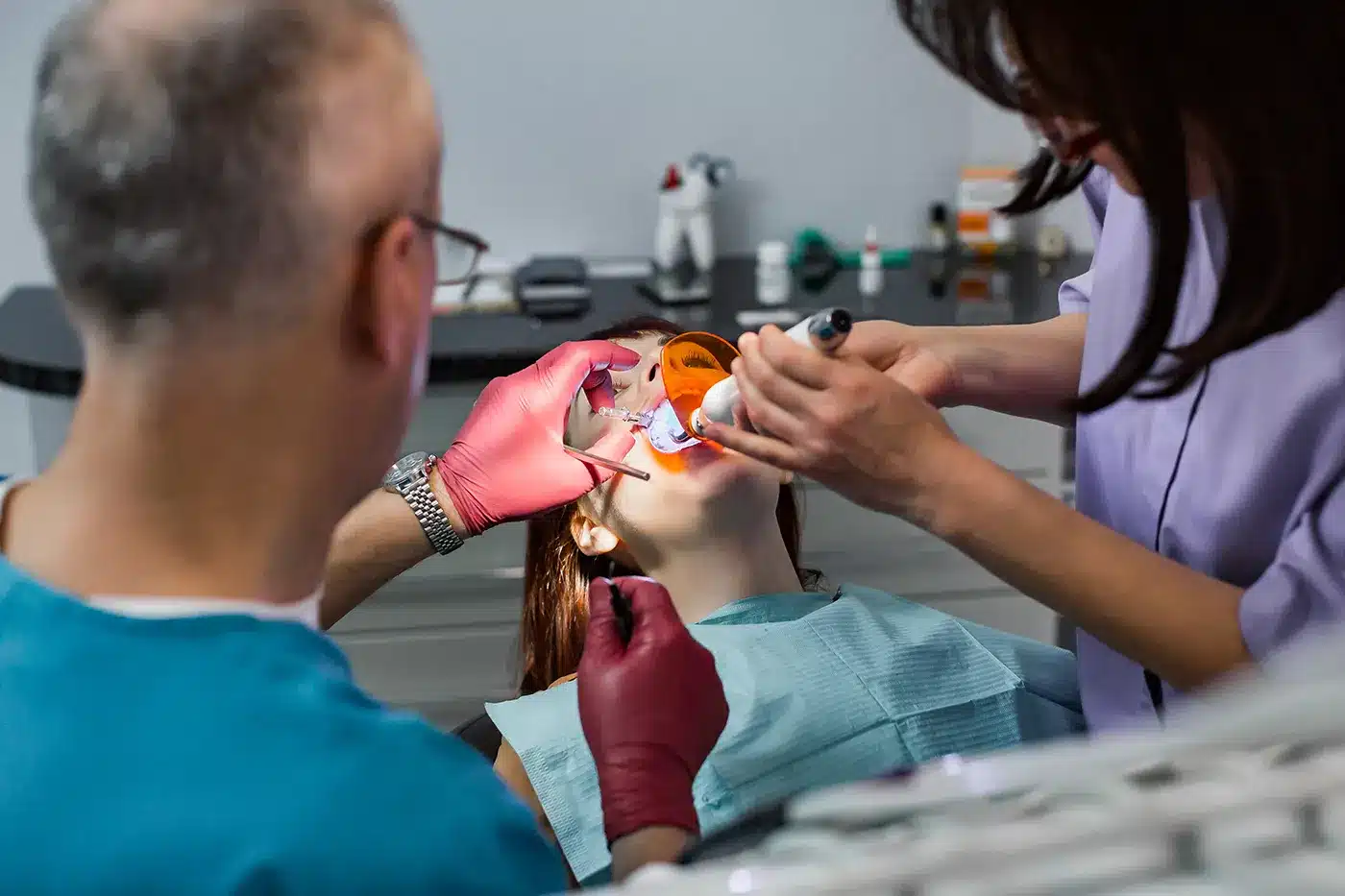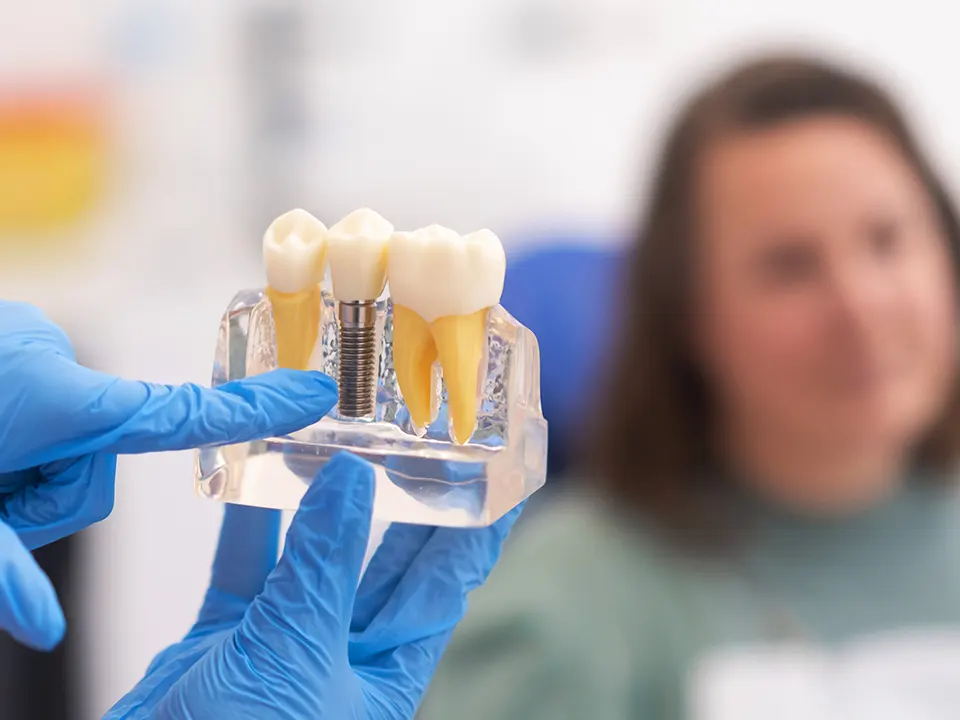
The Ultimate Guide to Choosing the Best Toothpaste for Your Oral Health
January 17, 2025
Searching for a Kids Dentist Near Me? Here’s What You Need to Know
April 16, 2025Have you ever felt that sharp jolt of pain when biting into something cold or sipping a hot drink? Teeth sensitivity can be frustrating and even disruptive to your day. It’s not only about discomfort; it often signals a deeper issue. With that being said, let’s look at the causes of teeth feeling sensitive and go over some practical solutions to bring you relief.
What Does Tooth Sensitivity Mean?
Tooth sensitivity, or dentin hypersensitivity, happens when your teeth react painfully to hot or cold food and drinks, or even sweet and acidic foods. It’s not just about temporary discomfort; it often points to underlying issues with your teeth and gums. For some, the sensation can be mild, while for others, it can feel like a sharp, shooting tooth pain that’s hard to ignore. Recognizing this as a sign of a deeper problem is the first step to addressing it.
Why Do Your Teeth Feel Sensitive? Common Causes
Understanding the root cause of teeth sensitivity can help you find the right solution. Teeth sensitivity can stem from a variety of issues, many of which are surprisingly easy to overlook. Here are some of the most common culprits:
Worn Tooth Enamel
Over time, the protective layer of your teeth, called enamel, can wear away due to acidic foods, frequent consumption of drinks like soda, or aggressive brushing. Enamel erosion exposes the softer layer underneath, leading to tooth sensitivity.
Gum Recession
Receding gums, often brought about by gum disease or brushing your teeth too hard, expose the roots of your teeth. Unlike the enamel-covered crowns, roots are more sensitive, which can lead to tooth sensitivity.
Tooth Decay or Damage
Cavities, cracks, or chipped teeth allow sensations to reach the inner nerves more easily. These issues don’t just cause tooth pain but can also make your teeth more sensitive to external triggers.
Grinding Your Teeth (Bruxism)
If you grind your teeth at night or during stressful situations, you’re wearing down your enamel. This habit not only contributes to enamel erosion but also increases the likelihood of sensitivity.
Dental Procedures
Had a recent filling, crown, or whitening treatment? These can temporarily lead to tooth sensitivity as your teeth adjust.

Solutions for Tooth Sensitivity
Luckily, there are several ways to tackle teeth sensitivity. Whether it’s a change in your oral care routine or professional dental treatment, there’s a solution that can help.
Gentle Oral Hygiene
Switch to a soft-bristled toothbrush and be mindful of how you brush your teeth. Aggressive brushing can lead to gum recession and enamel erosion over time. Use a fluoride toothpaste to strengthen tooth enamel and protect against further wear.
Desensitizing Toothpaste
Desensitizing toothpaste is specially formulated to reduce teeth sensitivity. It works by blocking the pathways that cause the pain response in your teeth. Regular use can provide noticeable relief.
Watch Your Diet
Acidic foods and drinks like citrus fruits, wine, and soda can weaken your enamel. To balance enjoying these, try drinking water after consuming them to help rinse away acids. Chewing sugar-free gum can help encourage saliva production, which naturally neutralizes acids and protects your teeth. Try to limit their consumption or follow them up with water to neutralize the acids.
Professional Dental Products
Your dentist can recommend or apply treatments like fluoride varnishes or sealants to protect your teeth. These treatments function by creating a protective barrier on the enamel, reducing the sensitivity caused by external triggers like hot or cold food and drinks. These add an extra layer of defence against triggers of sensitivity.
Address Receding Gums
If gum recession is behind your tooth pain, treatments like gum grafting can restore lost gum tissue and cover exposed roots. This not only reduces sensitivity but also improves the overall health of your teeth and gums.
Treat Underlying Issues
If cavities or damaged teeth are causing your sensitivity, your dentist may suggest fillings, crowns, or other restorative procedures. In severe cases, a root canal might be necessary to remove the inflamed nerve and provide long-term relief.
When to See a Dentist
While some sensitivity can be managed at home, persistent or severe tooth pain is a sign to visit your dentist. Other red flags include visible damage, ongoing pain despite using desensitizing toothpaste, or symptoms of gum disease like swelling or bleeding gums. Your dentist can identify the cause of your teeth sensitivity and recommend effective treatments.
In Summary
Living with teeth sensitivity can be frustrating, but it doesn’t have to be a permanent issue. Simple changes like switching to a soft-bristled toothbrush, reducing acidic foods, or addressing that grinding habit can significantly impact. If the discomfort persists, your dentist can provide personalized solutions, from desensitizing treatments to addressing receding gums. Don’t wait for the pain to worsen. Take action now to care for your teeth and gums so you can enjoy your favourite foods and drinks without discomfort!
For professional guidance and solutions tailored to your needs, contact Regehr Dental to book your appointment!



